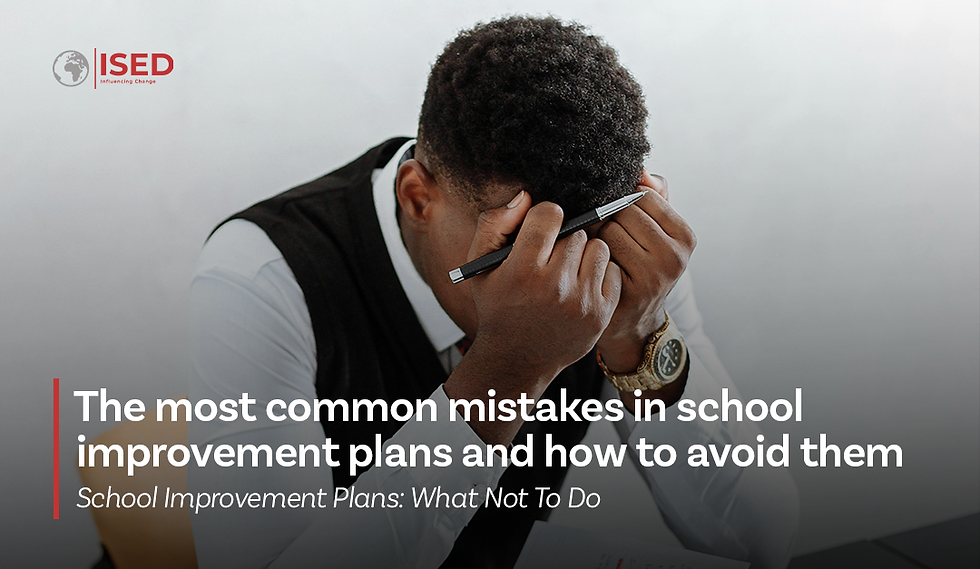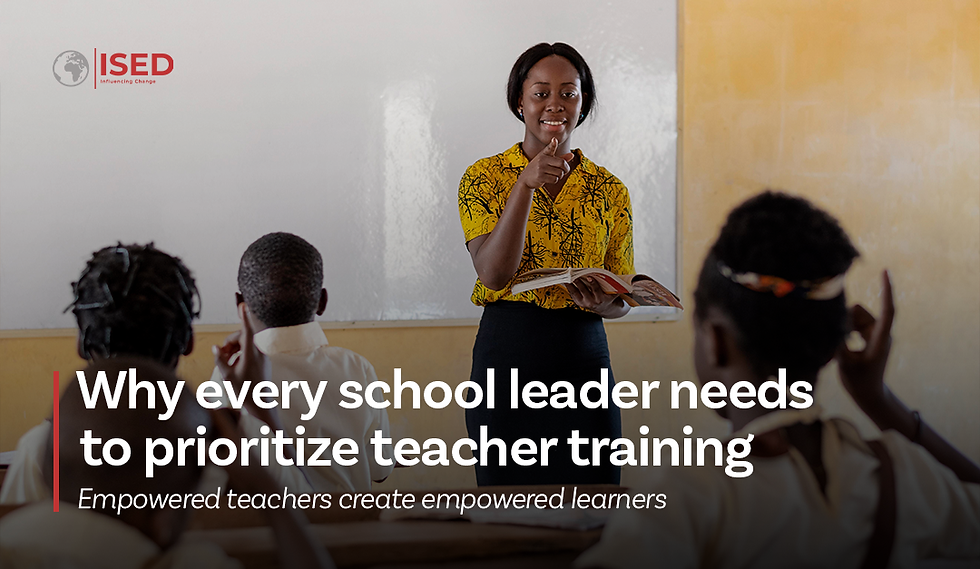Raising a New Generation of Leaders
- Aug 19, 2022
- 5 min read
Updated: Aug 21, 2022
Paramount on the heart of every parent is the success of his/her children in academic and non-academic pursuits. A lot of time and money is often invested into the lives of our children ensuring that they receive the best education we can afford – and we sometimes strive hard, denying ourselves certain privileges in our attempt to keep up with the ever-rising cost of good quality educational services. Because our children are diverse and of varying abilities, we often require the services of private instructors - who complement the efforts of the teachers in our children’s quest for good education.
As part of their curricula, schools offer civics, citizenship or moral instruction (some offer religious education) in an attempt to equip the children with much needed social skills, standards of moral excellence, and a measure of patriotism. Assemblies, field trips, school visits by outstanding professionals and notable public figures are an integral part of this program, providing the children with first-hand experience of the principles taught in class. This often requires a tremendous amount of planning on the part of all concerned.
It is important at this point to note that all the effort and time invested often culminates in a lesson, a day trip or a report (verbal or written), and it is limited to the 6-hour school day (average amount of time children spend in school). What happens to the rest of the day?
As parents, we expect optimum input from the schools for whatever fees we pay. We invest tirelessly into our children’s education over a span of at least 20 years and as such we tend – unintentionally - to abdicate the responsibility of educating them to the school system. Upon reflection, we have seen that the path on this journey often leads to a turbulent future for our children. When we stop and consider the expectations we have for them as the future ‘men’ and ‘women’ at the helm of affairs, be it in our personal businesses, in governance, in any sphere of the public and private sectors of our nation and even globally, we may discover that they are ill-prepared for the demands and the challenges such an assignment would involve. We seem to be raising a generation of dependent individuals who would unfortunately lack the dexterity to lead us on a personal, national and international level.
The former US Secretary of state, Collin Powell once told a group of University graduates the following: “Do the right thing by setting your own internal standards of excellence, your own internal standards of behaviour and making sure that you meet them and exceed them. Do the right thing, even when you get no credit for it, even if you get hurt by doing the right thing. Do the right thing when no one is watching or will ever know about it. You will always know.”
Having intrinsic motivation to succeed is a sure indicator that an individual will self actualise, regardless of place or circumstance. Intrinsic values and drives, as much as they are dependent on the individual can be acquired, developed and optimised. Like the popular saying goes: ‘Garbage in, garbage out!’ What we put in is what we receive out of farmland, businesses and people as well. We cannot expect to have loving, considerate individuals who are able to empathise with others and motivate them to put their best foot forward just fall from heaven. These individuals have to be raised (cultivated, nurtured, groomed) in our homes. These individuals have to be taught (instructed, directed, guided, trained) the values and virtues needed to rise to the helm of affairs at any level. Such a vital and monumental task can most certainly not be accomplished by another individual alone. It takes the combined effort of schools, religious establishments, and most importantly, people, to get the job done. It is therefore important to intentionally review the lifestyles our children with the aim of orchestrating the identification and development of natural abilities and talents, the acquisition of knowledge through formal media such as schools and religious organisations, and the acquisition of experiential knowledge through personal trials and errors.
This should by no means constrain us to put our children in armoured-tank-vehicles and to have satellite monitors track them 24/7. Far from it! This should however, lead us to deliberately examine the way in which we raise our children. Teaching virtues such as responsibility, accountability, honesty, empathy, and all the other ‘..ty’s’ should be high priority on our list.
Having said that, I am almost deafened by the panic bells I hear that have just gone off in the minds of the many readers – ‘when’, ‘how’, ‘where’ will all this take place? There are what can be defined as teachable moments when you can communicate a valuable life lesson to your children. At the end of a movie perhaps, on the way home, you can review the character traits that you want to highlight or correct in an informal chit-chat. You can point out the flaws and suggest alternate behavioural patterns that would have empowered this individual to overcome whatever challenges they faced. You can ask multi-layered questions that encourage your children to process information and give their opinions and perspectives. You can actually take an hour or more every weekend to have a conversation with your children. This is especially important for preteens and teenagers, as the line of communication is often unintentionally closed during these crucial years of development.
Research has shown and all teachers would agree that children as young as 3 have their own opinions and can make good choices given the right background information. This information is often received from the home (from whoever is available to give it) and can be transferred to all their peers. As they get older, the sources of information begin to broaden and exposure to a world of knowledge provides both exhilarating and constricting experiences. These experiences culminate in the development of well-formed character which is near impossible to reform by the time these young people mature into adulthood. It is therefore needful to maximise the opportunity we have – especially for those who still have young children – to instil the virtues needed to ensure our children mature into an informed citizenry which provides the prerequisite foundation for true leadership. We must invest as much time and money into giving our children values that build intrinsic motivation for success as independent and responsible citizens, as we do in their education. Several books, videos, podcasts, websites, seminars and camps are available as support but we remain the primary source of all beliefs and values systems for the children.
There is an earnest cry for leadership! The world today needs leaders who can stand their ground in the face of apostate movements, leaders who can raise their voices above the din of compromise and corruption, leaders who will commit to societal reform and national transformation. These leaders are not born but are developed, moulded, groomed by the skilful sculpting of parents through the informed choices we make on our children’s journey of life. The onus is on us to raise a new generation of leaders that can birth the visions and dreams we have for our nation and the world at large.

Dr. Joy Isa







Comments